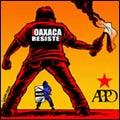stop fumigating
nn - 28.12.2006 18:34
Stop Fumigating! Campaign in Argentina takes off
info: Submitted by slowcode on Thu, 2006-12-21 14:09.
Start: 2006-12-21 13:02
Timezone: Etc/GMT
Residents Say "Stop the Spraying!"
Marcela Valente, IPS News
November 11 2006

demonstration
BUENOS AIRES, Nov 17 (Tierramérica) - Cultivation of genetically modified soybeans is expanding in Argentina, and with it, the use of herbicides. The "Paren de fumigar" (Stop the Fumigation) campaign warns against agro-chemical spraying in urban areas, as activists collect information about its impacts in order to denounce it.
Behind the initiative are the Rural Reflection Group (GRR), the Nature Protection Centre and neighbourhood organisations. Jorge Rulli, with GRR, told Tierramérica that so far this year the campaign -- which began in January and covers all rural areas -- collected more than 60 complaints. He explained that "it is no accident" that most of them come from the provinces of Córdoba (central Argentina) and Santa Fe (central-east), which along with Buenos Aires province make up the country's epicentre of soybean cultivation -- and the associated use of the herbicide glyphosate.
"We want to put together a map showing that (the intensive use of agro-toxins) is a systemic model of rural development that will produce a health catastrophe," Rulli said.
In the last 15 years, genetically modified (GM) soybean farming has extended its zone of influence, and today is Argentina's leading crop, as well as the country's principal export.
The latest harvest of 15.5 million hectares consumed 160 million liters of glyphosate -- six times more than a decade ago. The serious problem, according to the groups' complaint, is that this chemical, which kills all plants except for the transgenic crop itself, is sprayed within metres of people's homes. Historically, forests, dairy farms and pastures surrounded the towns, and mitigated the impact of chemical spraying of fields. But now those protective barriers have disappeared.
"We have soybeans to the north, south and east," said Sofia Gatica, who lives in the Ituzaingó Anexo neighbourhood on the outskirts of Córdoba, capital of the province of the same name. Home to 5,000 people, Ituzaingó Anexo is the limit between city and countryside. "I cross the street and that's where the soybeans begin. And of course if they plant it, they also spray it," Gatica said in a conversation with Tierramérica.
According to Argentina's 2005 Law on Agro-Toxins, the limit for spraying pesticides and herbicides is 1,500 metres from populated areas. In 2002, the neighbourhood was declared a health emergency area after a study by the provincial ministry of health found higher incidences of leukemia, lupus, skin hemorrhages and genetic malformations.
Another report, presented in March, studied 30 children between the ages of seven and 14 in the neighbourhood. It found the presence of five agro-toxins in their blood, 25 with higher levels than considered safe by the health authorities.
Following this investigation, conducted by epidemiologist Edgardo Schneider at the request of the Mothers of Ituzaingó group, the city government "concluded that the neighbourhood had to be evacuated," said Gatica. But the residents remain there, alongside the soybeans, as the crop dusters continue to fly overhead, spraying the fields.
The law also created a registry of those who apply the chemicals, and requires they receive training in chemical management. But the residents say there are excesses and dishonesty in the handling and application of herbicides. Also in circulation are trucks and tractors that empty and clean their tanks at sites in towns, and they drip the chemicals along the way. Furthermore, some municipalities use glyphosate to combat weeds growing between the cracks in the pavement.
Some local governments have passed regulations to stop crop spraying near town limits, but residents complain that there aren't enough controls to ensure that farmers obey the rules and that the authorities regularly give in to pressure from the farmers.
The GRR has received complaints from other urbanised areas of Córdoba, including Montecristo, Mendiolaza, Río Cuarto and San Francisco, and from towns in Santa Fe province, such as San Lorenzo, San Justo, Las Petacas, Piamonte, Alcorta and Máximo Paz. And, most recently, from Buenos Aires province. A study financed by the Ministry of Health, conducted in five towns in southern Santa Fe province, produced some alarming data.
According to the Centre for Biodiversity Research, the National University of Rosario, the National Institute of Agricultural Technology and the Italian Hospital of Rosario, there is a "very significant incidence" of cancer and malformation in the area studied.
The research, presented in January, showed that in the Santa Fe towns of Alcorta, Bigand, Carreras, Máximo Paz and Santa Teresa there are 10 times more cases of liver cancer than the national average, double the number of pancreatic and lung cancer, and three times more gastric and testicular cancer.
Also recorded were numerous cases of hypospadia (the urethra exits the penis at a point before the tip) and cryptorchism (undescended testicles) -- both are birth defects associated with the use of agrochemicals. Ninety percent of the pathologies are linked to fixed sources of contamination or environmental risk factors, says the report, which confirms that some of those sources, in the rural areas studied, surpass the averages.
Today there are 200 people in the neighbourhood who have cancer, according to Mothers of Ituzaingó, who conducted a door-to-door survey, and brought the issue before the Supreme Court of Justice. They are awaiting a decision.
(*Originally published Nov. 11 by Latin American newspapers that are part of the Tierramérica network. Tierramérica is a specialised news service produced by IPS with the backing of the United Nations Development Programme and the United Nations Environment Programme.)
Contact and links:
Madres de Ituzaigo, ( vecituza@hotmail.com, Sofia Gatica), CEPRONAT, GRR ( vecituza@hotmail.com, Sofia Gatica), CEPRONAT, GRR ( parendefumigar@grr.org.ar ; parendefumigar@grr.org.ar ;  rtierra@infovia.com.ar ) rtierra@infovia.com.ar )
links: login or register to post comments | calendar taxonomy: agrochemicals | Argentina | Campaigns | fumigation | human rights
|


